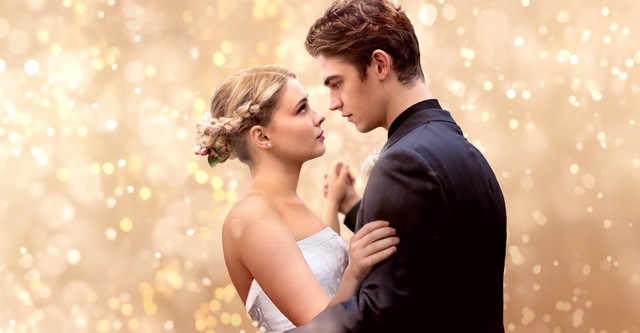
Beyond the Pillow Fights: Is “After Ever Happy” (md07) a Mature Movie? And Is It Worth Your Time?
The “After” series, born from the Wattpad phenomenon and brought to the big screen, has carved a niche for itself as the modern-day equivalent of angsty, forbidden teen romance. Focusing on the tumultuous relationship of Tessa Young and Hardin Scott, the films are often criticized for their melodramatic plotlines, questionable relationship dynamics, and, frankly, their tendency to reduce complexity to steamy encounters. But with the fourth installment, “After Ever Happy,” (which I’m assuming is what “md07” refers to), the question arises: has the series matured? And more importantly, is it finally worth watching?
To address the first point, “maturity” within the “After” universe is a relative concept. Compared to the chaotic impulsiveness of the earlier films, “After Ever Happy” does attempt to grapple with heavier themes. We see Hardin wrestling with crippling writer’s block, fueled by the revelation of his true parentage and past trauma. Tessa, meanwhile, faces her own personal crisis as she struggles to come to terms with infertility. These struggles, while still tinged with the series’ trademark melodrama, offer glimpses of the characters attempting to confront real-world problems, a stark contrast to the early films where misunderstandings and impulsive decisions drove the narrative.
However, even with these more serious themes, the film struggles to fully embrace them. The exploration of Hardin’s childhood trauma feels rushed and underdeveloped, serving more as a catalyst for dramatic outbursts than genuine character growth. Tessa’s infertility, while a significant personal tragedy, is often overshadowed by the ever-present drama surrounding Hardin and his demons. The film strives for maturity by tackling these issues, but ultimately falls short of providing nuanced or insightful portrayals.
Furthermore, the film continues to perpetuate some of the problematic dynamics that plagued the earlier installments. While the characters demonstrate moments of growth and understanding, the cycle of conflict, forgiveness, and passionate reconciliation remains a central theme. Hardin’s possessiveness and tendency towards self-destruction still loom large, albeit somewhat subdued compared to the initial films. This repetition, while familiar to fans of the series, can feel tiring and ultimately undermines the attempts at deeper character development.
So, is “After Ever Happy” a mature movie? The answer is a qualified “sort of.” It attempts to grapple with more complex themes than its predecessors, but it still relies heavily on the same melodramatic tropes and questionable relationship dynamics that have defined the series. It’s a step in the right direction, perhaps, but not a complete transformation.
This leads to the ultimate question: is it worth watching? This is a subjective question, and the answer largely depends on your relationship with the “After” series.
- For die-hard “After” fans: If you’ve been invested in Tessa and Hardin’s journey from the beginning, you’ll likely find “After Ever Happy” to be a worthwhile watch. It provides closure (or at least a stepping stone towards it) and offers glimpses of the characters moving towards a more mature understanding of themselves and their relationship. The familiar elements of romance and drama will undoubtedly satisfy your expectations.
- For newcomers or casual viewers: If you’re unfamiliar with the series or found the earlier installments to be lacking, “After Ever Happy” is unlikely to change your mind. The film still suffers from many of the same flaws that plagued its predecessors, and the attempted maturity may not be enough to overcome the inherent melodrama.
- For those seeking genuinely nuanced and mature romantic dramas: There are countless films that explore the complexities of relationships with far more depth and insight. “After Ever Happy” is ultimately a product of its source material and its target audience, and it doesn’t pretend to be anything more than a heightened, romanticized portrayal of young love and its challenges.
In conclusion, “After Ever Happy” attempts to mature by tackling heavier themes, but ultimately remains rooted in the melodramatic tropes and questionable dynamics that define the “After” series. Whether it’s worth watching depends on your personal investment in the characters and your tolerance for the series’ inherent flaws. While it offers a degree of closure and hints at future growth, it’s ultimately a film best suited for die-hard fans seeking a familiar dose of angsty romance. For those seeking a truly mature and insightful portrayal of relationships, there are far more compelling options available.
